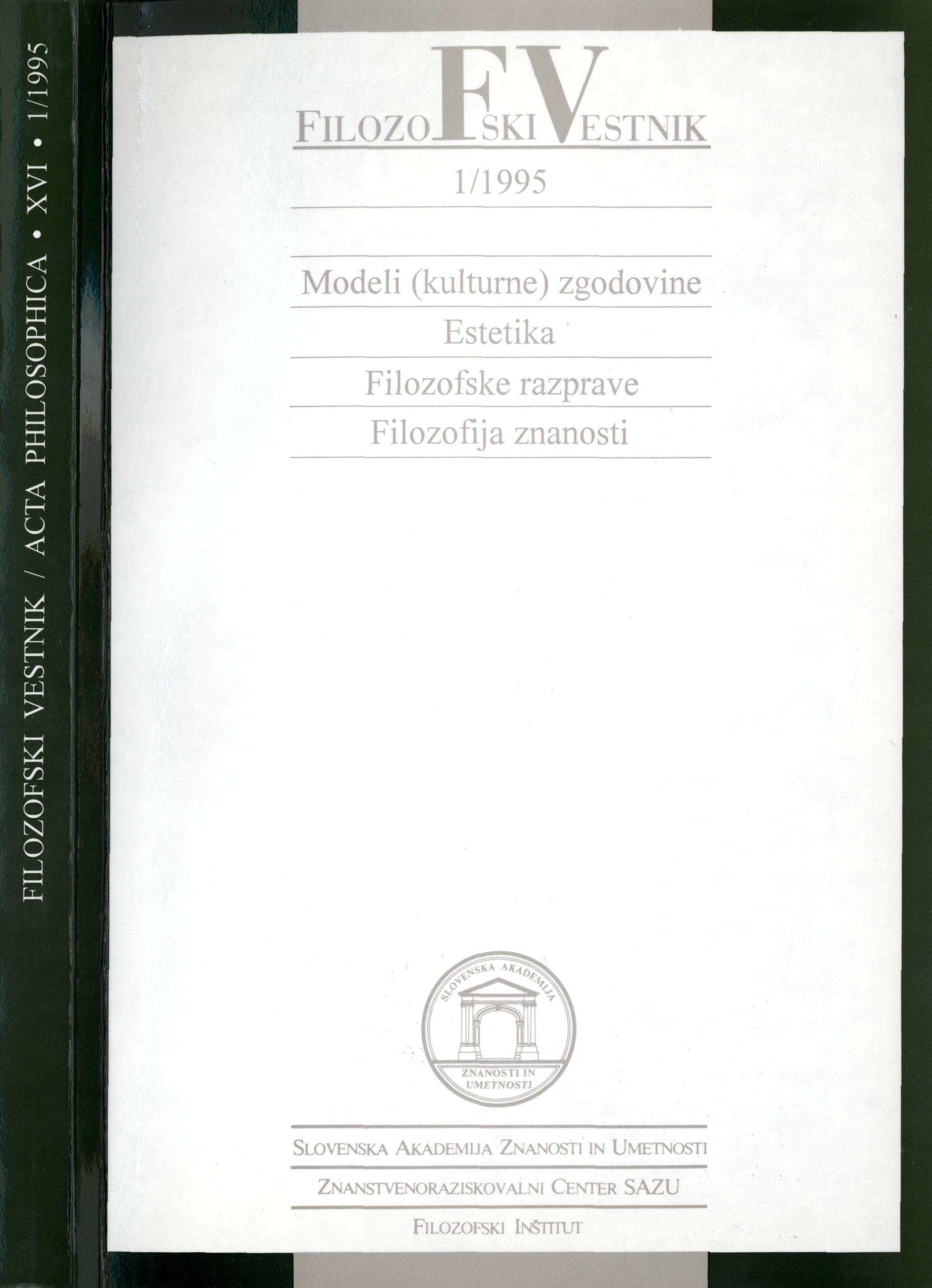Filozofija ob koncu stoletja
Povzetek
Pregledujem sedanje slepe ulice zahodne filozofije in predlagam nov začetek. V sedanjem trenutku prevladujejo tri najmočnejše pojmovne opcije; skepticizem, kognitivni privilegij in historicizem. Prvi je škandal, drugega zavračajo vse strani, tretji pa je trenutno dokaj zanemarjen. Historicizem ali zgodovinskost - pojem, daje mišljenje notranje historizirano, da je mišljenje zgodovina - je edini velik nov prispevek moderne filozofije k glavnim pojmovnim virom zahodne tradicije. Sodobna filozofija, posebno angloameriška analitična filozofija, je v bistvu nadaljevanje filozofije 17. stoletja in predkantovske filozofije 18. stoletja, ki ju begajo »nepomembnosti« 19. stoletja; kontinentalna filozofija, v glavnem francoska in nemška, pa se je zdaj pripravljena prilagoditi ahistoricizmu analitične filozofije. Predlagam ponovno odkritje historicizma in prepoznam številne različne strategije, ki dajejo prednost taki politiki, za katero napovedujem, da bo še enkrat prišla na vrsto v naslednjem stoletju. Še posebej skrbno raziskujem vidike prve filozofije, zaprtih sistemov, rešitev problemov reference in predikacije, odnos med naravo in kulturo, odnos med realizmom in idealizmom in naravo ter funkcijo osebe ali sebstva. Ugotavljam, da se sodobna filozofija mora spoprijeti s prispevki Kantovega konstruktivizma in Heglove simbioze in iti preko obeh. Med dokazovanjem orišem splošno krivuljo zahodne filozofije vse do današnjih časov.Prenosi
Podatki o prenosih še niso na voljo.
Prenosi
Objavljeno
2016-01-23
Kako citirati
Margolis, J. (2016). Filozofija ob koncu stoletja. Filozofski Vestnik, 16(1). Pridobljeno od https://ojs.zrc-sazu.si/filozofski-vestnik/article/view/3911
Številka
Rubrike
Filozofske razprave
Licenca
Avtorji jamčijo, da je delo njihova avtorska stvaritev, da v njem niso kršene avtorske pravice tretjih oseb ali kake druge pravice. V primeru zahtevkov tretjih oseb se avtorji zavezujejo, da bodo varovali interese založnika ter da bodo povrnili morebitno škodo.
Podrobneje v rubriki: Prispevki





